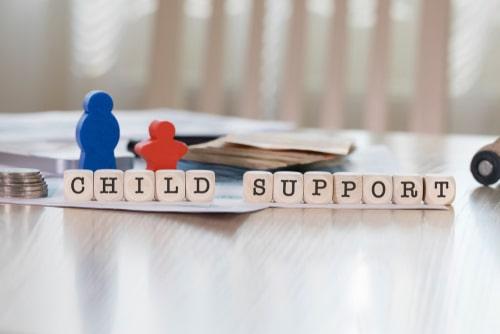Recent Blog Posts
How to Protect Your Rights During a High-Conflict Divorce
 The process of divorce is rarely easy, but it can become especially challenging in situations involving high levels of conflict between spouses. In these cases, emotions can run high, and spouses may struggle to find common ground on important issues such as child custody, asset division, and spousal support.
The process of divorce is rarely easy, but it can become especially challenging in situations involving high levels of conflict between spouses. In these cases, emotions can run high, and spouses may struggle to find common ground on important issues such as child custody, asset division, and spousal support.
If you are going through a high-conflict divorce in Illinois, it is essential that you take steps to protect your rights. By being proactive and seeking legal guidance from a divorce attorney who has experience representing clients in high-conflict cases, you can ensure that your interests are safeguarded throughout the process.
The Importance of Legal Representation
While some people may consider handling their divorce proceedings without legal representation in order to save costs, this approach can often be detrimental, especially during a high-conflict divorce. With an experienced divorce attorney by your side, you can receive invaluable support and legal guidance as you work to try to resolve disputed issues. Your lawyer will help you navigate through the sometimes complex legal procedures involved in your divorce, and they will advocate for your rights and best interests. By working with the right attorney, you can make sure you will be fully prepared to negotiate agreements with your spouse or resolve matters in the courtroom when necessary.
The Benefits of Mediation in Child Custody Disputes
 During divorces and other family law cases, parents may need to resolve subjects related to child custody, and they may disagree on how to divide or share parental responsibilities and parenting time. Child custody-related disputes can be emotionally draining and difficult for all parties involved. Resolving these disputes through litigation in court can lead to increased hostility between parents, and prolonged legal battles can have negative effects on all members of a family.
During divorces and other family law cases, parents may need to resolve subjects related to child custody, and they may disagree on how to divide or share parental responsibilities and parenting time. Child custody-related disputes can be emotionally draining and difficult for all parties involved. Resolving these disputes through litigation in court can lead to increased hostility between parents, and prolonged legal battles can have negative effects on all members of a family.
Fortunately, there is an alternative method that offers numerous benefits for families who need to address child custody issues: mediation. To determine whether this option may be beneficial in your situation, you should consult with an experienced family law attorney who can provide guidance on the best ways to resolve legal disputes related to your children.
6 Tips for Co-Parenting Successfully After Divorce
 Going through a divorce can be emotionally challenging for anyone, but it can be especially complicated and difficult for parents. If you have children, you will need to address a variety of subjects related to child custody (now called “parental responsibilities” in Illinois) during your divorce. This process can not only involve dealing with legal factors, but the changes you and your ex may be required to make in your lives can also lead to emotional turmoil. You may be able to alleviate some stress and minimize difficulties by agreeing to work together to raise your children as co-parents, even though you will no longer be married.
Going through a divorce can be emotionally challenging for anyone, but it can be especially complicated and difficult for parents. If you have children, you will need to address a variety of subjects related to child custody (now called “parental responsibilities” in Illinois) during your divorce. This process can not only involve dealing with legal factors, but the changes you and your ex may be required to make in your lives can also lead to emotional turmoil. You may be able to alleviate some stress and minimize difficulties by agreeing to work together to raise your children as co-parents, even though you will no longer be married.
Co-parenting after divorce requires effective communication, cooperation, and putting the best interests of your children first. This may be easier said than done, especially after your relationship with your ex-spouse has broken down beyond repair. To make sure you will be able to co-parent your children effectively, you should work with an experienced family law attorney to develop a parenting plan that will meet your family’s needs.
5 Tips for Negotiating a “Parenting Plan” During a Divorce
 Divorce is rarely an easy or simple process, but it can become even more complicated and difficult when children are involved. When parents address child custody (now called parental responsibilities in Illinois) issues during divorce proceedings, they will need to create a “Parenting Plan” document which outlines how child-related issues will be handled by the parents going forward. A well-crafted “Parenting Plan” document can help avoid conflict and provide stability for children. When negotiating the terms of a parenting agreement, a skilled family law attorney can help protect your parental rights and provide guidance on how to protect your children’s best interests.
Divorce is rarely an easy or simple process, but it can become even more complicated and difficult when children are involved. When parents address child custody (now called parental responsibilities in Illinois) issues during divorce proceedings, they will need to create a “Parenting Plan” document which outlines how child-related issues will be handled by the parents going forward. A well-crafted “Parenting Plan” document can help avoid conflict and provide stability for children. When negotiating the terms of a parenting agreement, a skilled family law attorney can help protect your parental rights and provide guidance on how to protect your children’s best interests.
The Importance of a “Parenting Plan”
A “Parenting Plan” is a document which constitutes a written agreement between divorcing or separating parents that outlines how they will share responsibilities and make decisions about their children’s upbringing. It covers subjects such as the allocation of parental responsibilities, parenting time schedules, communication methods, dispute resolution procedures, and more.
5 Common Financial Issues to Address in a High Net Worth Divorce
 The process of divorce can be emotionally and financially draining. This is particularly true for couples who have a high net worth, as they often have complex financial situations that need careful consideration as they work to separate their lives from each other and legally dissolve their marriage. If you are in this situation, addressing these vital financial issues will be crucial, since it will ensure that you will be able to move forward and maintain financial stability after terminating your marriage.
The process of divorce can be emotionally and financially draining. This is particularly true for couples who have a high net worth, as they often have complex financial situations that need careful consideration as they work to separate their lives from each other and legally dissolve their marriage. If you are in this situation, addressing these vital financial issues will be crucial, since it will ensure that you will be able to move forward and maintain financial stability after terminating your marriage.
Key Financial Issues to Consider During a High Net Worth Divorce
-
Categorizing marital property vs. separate property: An important aspect of any divorce involves identifying which assets are considered marital property. In high net worth divorce cases, one spouse may have brought significant pre-marital assets into the marriage that should not be subject to division. Clear documentation of the source of different types of assets can be crucial when determining what property will be subject to division. In some cases, the terms of a prenuptial agreement may play a role in determining what types of assets will be considered marital or separate property.
How Can I Protect My Professional Practice During My Divorce?
 When you are going through a divorce, you may be concerned about how it will affect a professional practice that you have worked hard to build. As you proceed with the process of ending your marriage, it is essential to take steps to protect your professional practice and ensure its continued success. Here are some important considerations as you address issues related to the division of marital property and other divorce-related concerns:
When you are going through a divorce, you may be concerned about how it will affect a professional practice that you have worked hard to build. As you proceed with the process of ending your marriage, it is essential to take steps to protect your professional practice and ensure its continued success. Here are some important considerations as you address issues related to the division of marital property and other divorce-related concerns:
Hire an Experienced Divorce Attorney
The first step towards protecting your professional practice is to work with a divorce lawyer who understands the complexities of business ownership and how to address financial concerns during divorce proceedings. Your attorney will guide you through the legal procedures that will be followed during your case, advocate for your financial interests, and help safeguard your professional practice.
UPDATE: What Happens When Child Support Becomes Past Due in Illinois?
 Originally published: May 27, 2021 -- Updated: July 24, 2023
Originally published: May 27, 2021 -- Updated: July 24, 2023
Update: As discussed below, there are a number of methods that may be used to enforce child support obligations and collect payments that are past due. However, parents should also understand when child support obligations may be modified based on changes that have occurred that have affected a person’s ability to make ongoing payments.
While Illinois courts take steps to ensure that both parents are contributing toward their children’s financial needs, they also recognize that circumstances may arise that could affect a person’s ability to support themselves while making these payments. If a parent who is required to pay child support experiences a change in circumstances that affects their ability to meet their obligations, they may request a modification of their child support order. For example, the loss of a job may affect a parent’s ability to make payments, and they may be able to have their obligations temporarily reduced until they can find new employment.
7 Tips for Talking to Your Children About Divorce
 Divorce can be a difficult and emotional process for both parents and children. When parents decide to separate, it is crucial to have open and honest conversations with children to help them understand and cope with the changes that are about to occur in their lives. Here are some helpful tips for discussing your divorce with your children:
Divorce can be a difficult and emotional process for both parents and children. When parents decide to separate, it is crucial to have open and honest conversations with children to help them understand and cope with the changes that are about to occur in their lives. Here are some helpful tips for discussing your divorce with your children:
1. Plan Ahead
Before talking to your children about divorce, take some time to plan what you will say and how you will approach the conversation. Choose a calm and quiet setting where everyone can feel comfortable and avoid distractions. If possible, it is often best if you and your spouse speak to your children together and present a united front in which you can explain why your divorce is the best solution for your family.
2. Be Honest and Age-Appropriate
When explaining the situation to your children, be honest about the reasons for the divorce, but discuss matters in an age-appropriate manner. Tailor your explanations based on your children’s understanding of family relationships and their emotional maturity. Avoid blaming each other or burdening your children with adult details that they do not need to know about.
How Many Years Do You Have to Pay Child Support in Illinois?
 Child support is a vital part of family law. It ensures the well-being of children whose parents are no longer together. In Illinois, understanding the period of child support obligations is essential for both custodial and non-custodial parents. Below we will explore the guidelines and regulations surrounding child support in Illinois, shedding light on how long one may be required to pay child support.
Child support is a vital part of family law. It ensures the well-being of children whose parents are no longer together. In Illinois, understanding the period of child support obligations is essential for both custodial and non-custodial parents. Below we will explore the guidelines and regulations surrounding child support in Illinois, shedding light on how long one may be required to pay child support.
Determining Child Support in Illinois
Before diving into the timeframe of child support, it is important to understand how child support amounts are calculated in Illinois. The state follows specific guidelines that consider various factors, including the income of both parents, the number of children, healthcare expenses, and childcare costs. These guidelines serve as a foundation for calculating child support obligations.
Duration of Child Support in Illinois
Can a Stepparent Adopt a Stepchild in Illinois?
 In today's modern world, blended families are more common than ever, and many stepparents have taken a key role in their stepchildren's lives. However, a stepparent does not have the same legal rights in relation to a stepchild that a biological parent does. In Illinois, though, there is a legal process of adoption by which a stepparent may gain those rights.
In today's modern world, blended families are more common than ever, and many stepparents have taken a key role in their stepchildren's lives. However, a stepparent does not have the same legal rights in relation to a stepchild that a biological parent does. In Illinois, though, there is a legal process of adoption by which a stepparent may gain those rights.
Stepparent Adoption Process in Illinois
Many stepparents love their stepchildren as if the child is their own, and they want to adopt the child to become the child's official, legal parent.
The criteria for obtaining legal stepparent adoption in Illinois include:
-
The stepparent is legally married to the child's biological parent;
-
The child consents to the adoption, if the child is at least 14 years old; and,

















